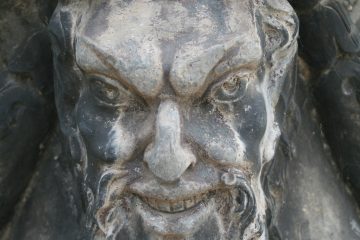Sumo wrestling is a Japanese form of wrestling that challenges many aspects of Christian discipleship. Here are some of the reasons why I could never become a rikishi (sumo wrestler).
Firstly I am not fat enough. Good friends tell me that I am potbellied but you have to be gargantuan and weigh about 400 pounds to be a proper sumo wrestler. Secondly I am not good at wrestling. At school my mate Otto Chan easily beat me in a wrestling bout when I was 14. Thirdly I went to an independent school in Hertfordshire where sumo wrestling was never mentioned.
Fourthly, and most importantly, sumo is infused with the Shinto faith which is focused on the appeasement of the ‘kami’. The best English translation of kami is spirits and the Shinto tradition declares that there are eight million kami. There are river gods, mountain gods and even boil and smallpox deities. Shinto unfolded as a religion to appease and propitiate the spirits in order to ensure bountiful harvests and divine protection.
For the Shinto faithful, the Japanese emperor was worshipped because he is descended from Amaterasu, the goddess of the sun. In the Shinto faith it is believed that when people die tragically, they might spitefully cause harm in the real world. To mitigate this, these unhappy spirits are worshipped as gods. Deceased Japanese heroes can also be worshipped.
There is also a dark side to the Shinto faith that is seldom mentioned – human sacrifice. In 323 AD, there was serious flooding in Japan and the emperor Nintoku(link is external) had a divine revelation in a dream that there was a man named Kowakubi who should be sacrificed to the river god. Kowakubi was subsequently thrown into the Kitakawa river and the flooding stopped.
Sumo wrestlers are required to follow the Shinto faith. They spend several minutes before a match lifting their legs high in the air and stomping them down in a vigorous and dramatic manner. They also throw salt into the fighting ring as a Shinto ritual. This faith in stomping and salt is believed to purify the fighting zone and to drive away evil spirits. In addition to this sumo wrestlers, as part of Shinto rituals, deliberately make babies cry in order to ward off evil spirits. Granted violence isn’t used but Shinto referees wearing terrifying masks glare at the infants if they refuse to sob.
As a Christian I refuse to put my faith in the magical powers of salt, stomping and screaming babies. Colossians 2:15 tells us this: “And having disarmed the powers and authorities, he made a public spectacle of them, triumphing over them by the cross.”
It is Christ who, by his death, has conquered evil spirits and it seems foolish to trust in salt, stomping or screaming babies to defeat the powers of darkness. I am fully aware that many Buddhists, Shintoists and diverse pagans and heathens believe that throwing salt over your shoulder can defeat the powers of darkness but I do not share this faith. I apologise if this sounds bigoted and intolerant but I have no desire to appease and placate false gods and worthless idols. Jesus died for me. He has forgiven all my sins. He has purified me by his blood and he has defeated sin, death and all the malign powers of darkness. Why would I put my faith in salt, stomping and sobbing babies and spurn such a great salvation?
It is certainly true that having rejected sumo wrestling I could become a rich, pampered professional footballer but the beautiful game also throws down the gauntlet to a follower of Jesus. Truth be told I am too old and porcine for the Premier League. Without doubt I lack skill, spatial awareness and fitness. I am also cognisant of the stark spiritual realities; I would be confronted by a different set of gods – the Unholy Trinity – Money, Sex and Power. A story to ponder.
In 2008 Marlon King, a professional footballer, was relaxing in a fashionable nightclub in Soho, London. Overwhelmed by carnal cravings, he began touching a young woman inappropriately. King, a Wigan Athletic striker at the time, was disappointed and irate when the young 20 year-old student resisted his salacious advances. He spoke to the woman forcefully: “Don’t you know who I am? I’m a millionaire. You’re not even in my league.” When she pushed him away, he punched her, leaving her with a broken nose, split lip and blood pouring down her dress. As security staff intervened and led him away, the player allegedly remarked: ”Why? I’ve done nothing wrong.”
In my view Marlon King is enslaved to false gods as much as the sumo wrestlers but his gods are far more subtle, deceptive and popular than the kami. So which are worse? The Japanese Shinto gods or the secular gods of the western world?
To be honest I am not sure but as a Christian I am zealous to avoid the worship of all false gods and idols whether secular, Shinto, or pagan (1 John 5:21). Following and serving false gods will not only ruin my life now but ruin my life in the age to come.
- Was Spinoza Right about the Devil? - June 23, 2025
- Kim Kardashian and how her family was rescued from the Armenian Genocide - May 26, 2025
- The Incredible Story of the Slave who became a Famous Scientist - April 26, 2025


